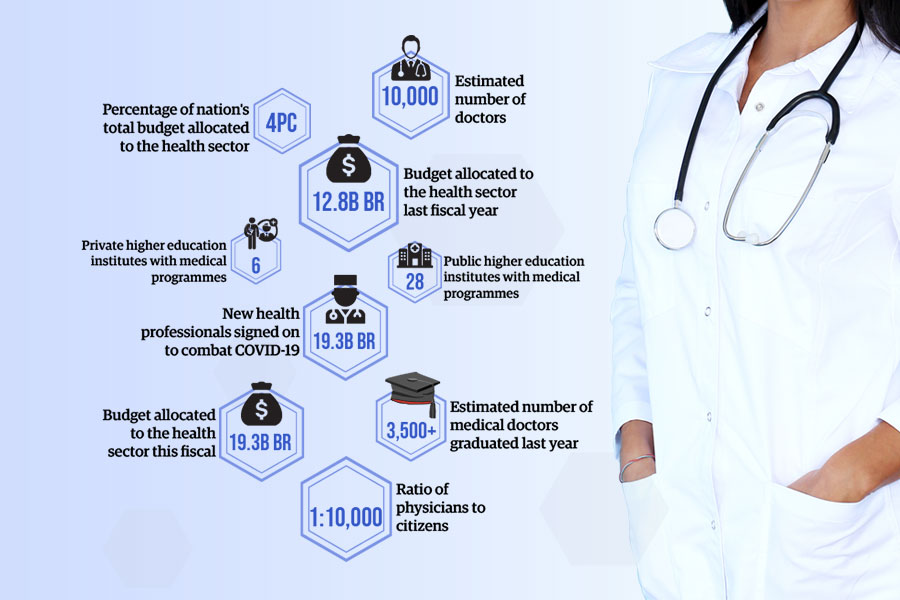
Jan 13 , 2024
By Eden Sahle
A recent controversy over televised content on rape got me thinking of my legal practitioner days. I witnessed the long-lasting emotional scars of victims that persist even after "justice" was served and physical wounds have healed.
I saw the victims strive to create awareness among the public so that no woman goes through what they went through. They get uplifted when they receive compassion from society as much as they grieve when they are misunderstood. Insensitive statements have the potential to reopen wounds and perpetuate misconceptions about this grave issue.
According to World Health Organisation (WHO), one out of 10 girls globally have been victims of sexual violence, including rape or other forced sexual acts. The number is similar in Ethiopia. The 2016 Ethiopia Demographic & Health Survey (2016 EDHS) by the Central Statistical Agency (CSA) revealed that divorced, separated or widowed women are more at risk of sexual violence (18pc) than unmarried women (two percent) while the most common perpetrator among married women (69pc) is a current partner.
In a society dealing with the pervasive issue of sexual violence, recent events have shed light on a deeply concerning matter: the trivialisation and normalisation of rape.
Attitudes and beliefs that are widely and continuously used to justify sexual aggression are prevalent and have the potential impact to have negative consequences for rape victims. Studies have shown that exposure to such type of content intensifies the perpetuation of crime and gender inequality.
The crux of the issue lies in the irresponsible portrayal of rape as a source of humour. Presenting such a brutal crime in a lighthearted manner contributes to the perpetuation of violence and aggression against women. It can have profound implications for victims who have experienced the physical, mental, and emotional aftermath of such crimes.
It is essential to understand why society holds personal views. Level of education, place of residence, religious affiliation and scepticism over the incident have been identified as aspects that endorse the internalisation process. When it is supported by sexism, gender norms, media portrayal and objectification, it opens the door to a victim-blaming attitude.
The impact affects children who may inadvertently be exposed to harmful material. Parents, rightfully concerned, are keeping their children away from media fearing exposure to inappropriate content.
In a society where sexual violence remains a serious and deeply entrenched issue, the responsibility to critically examine our attitudes and discourse becomes paramount.
Normalising rape not only erodes public trust but also contributes to the perpetuation of a crisis that demands our urgent attention. It is a societal ill that requires collective condemnation.
Rape should never be portrayed as a laughing matter. By breaking the silence and confronting the disturbing reality, we can contribute to a cultural shift that respects the gravity of this crime, supports survivors, and works tirelessly to eradicate sexual violence from the fabric of our society.
PUBLISHED ON
Jan 13,2024 [ VOL
24 , NO
1237]

Commentaries | May 01,2020

Sunday with Eden | Sep 28,2024

Editorial | Dec 04,2022

My Opinion | Jun 29,2024

My Opinion | Apr 28,2024

Sunday with Eden | Aug 31,2019

Radar | Apr 03,2023

Addis Fortune | Nov 04,2020

Viewpoints | Dec 15,2024

Fortune News | Oct 31,2020

My Opinion | 132151 Views | Aug 14,2021

My Opinion | 128561 Views | Aug 21,2021

My Opinion | 126482 Views | Sep 10,2021

My Opinion | 124091 Views | Aug 07,2021





Dec 22 , 2024 . By TIZITA SHEWAFERAW
Charged with transforming colossal state-owned enterprises into modern and competitiv...

Aug 18 , 2024 . By AKSAH ITALO
Although predictable Yonas Zerihun's job in the ride-hailing service is not immune to...

Jul 28 , 2024 . By TIZITA SHEWAFERAW
Unhabitual, perhaps too many, Samuel Gebreyohannes, 38, used to occasionally enjoy a couple of beers at breakfast. However, he recently swit...

Jul 13 , 2024 . By AKSAH ITALO
Investors who rely on tractors, trucks, and field vehicles for commuting, transporting commodities, and f...

Jul 12 , 2025
Political leaders and their policy advisors often promise great leaps forward, yet th...

Jul 5 , 2025
Six years ago, Ethiopia was the darling of international liberal commentators. A year...

Jun 28 , 2025
Meseret Damtie, the assertive auditor general, has never been shy about naming names...

Jun 21 , 2025
A well-worn adage says, “Budget is not destiny, but it is direction.” Examining t...

Jul 13 , 2025 . By YITBAREK GETACHEW
The Addis Abeba City Revenue Bureau has introduced a new directive set to reshape how...

Jul 13 , 2025 . By BEZAWIT HULUAGER
Addis Abeba has approved a record 350 billion Br budget for the 2025/26 fiscal year,...

Jul 13 , 2025 . By RUTH BERHANU
The Addis Abeba Revenue Bureau has scrapped a value-added tax (VAT) on unprocessed ve...

Jul 13 , 2025 . By NAHOM AYELE
Federal lawmakers have finally brought closure to a protracted and contentious tax de...